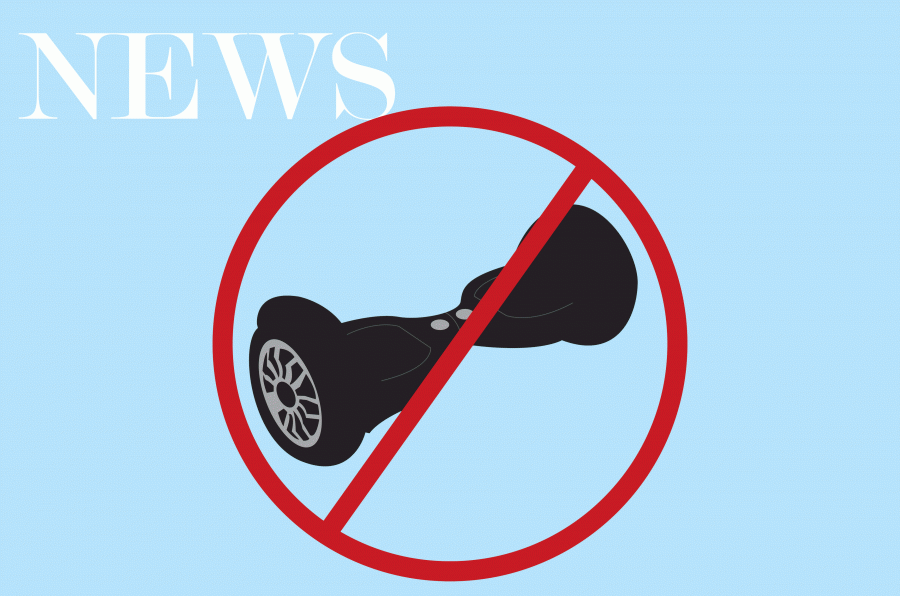University says “No” to hoverboard use
February 5, 2016
One of the hottest gadgets of the holiday season also appears to be one of the most dangerous.
On Jan. 9, just days before classes reconvened for the spring semester, Chief of Public Safety Steve Barilar circulated an email to the student body prohibiting “the operation, storage and charging of hoverboards on campus due to fire and other risks associated with their use.”
The decision precedes an announcement made by the chairman of the U.S. Consumer Product Safety Commission on Jan. 20, which encouraged the suspension of all online sales of hoverboards until the completion of a thorough safety investigation of the product. The popular device, which sells for between $250 and $1,500, has raised concerns regarding its connection to serious fall injuries and spontaneous fires.
According to Barilar, the prohibition of hoverboards on campus is entirely due to the sudden fires caused by their lithium-ion batteries, not the high rate of falling injuries that are associated with their use.
“The number of wooden objects in students’ dormitories—from the bedposts to the desks to the chairs—makes the presence of hoverboards on campus to be that much more hazardous,” Barilar said.
Hoverboards, which are two-wheel, self-balancing scooters, are roughly the size of a standard skateboard. Riders do not, as they would when riding a skateboard, stand atop the wheels and point the nose of the instrument forward. Instead, they stand between the wheels with the board parallel to their shoulders. The gadget is commonly compared to a Segway vehicle, though it is equipped with smaller wheels and notably lacks handlebars.
While some students agree that the hoverboard is a product worth banning from campus—either because it is a reportedly unsafe device or other reasons—other students think otherwise.
“I thought [the ban] was unnecessary. I didn’t feel like the demand for them would be that high in the first place. Enforcing the ban and informing students of it twice [in two separate emails] works as an incentive for students to bring them,” David Kading ’17 said.
“I don’t think that [the campus] should allow everyone on hoverboards. It would affect road traffic. As a driver on this campus, that’s what I care about,” Ayesha Lilaoonwala ’17 said.
“I think it’s a good decision. Have you heard about how hoverboards catch on fire? I wouldn’t leave one charging in my room,” Kevin Fine ’17 said.




















